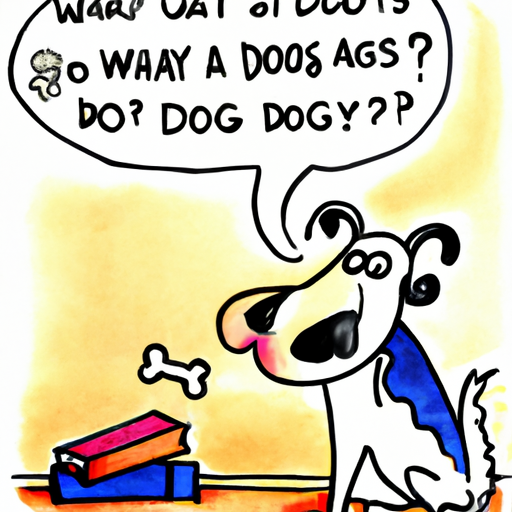Understanding Your Dog’s Appetite
Just like us, your beloved pooch has to eat to survive. But have you ever stopped to ask ‘why’ beyond the basic need for nutrition? Well, you’re not alone. Many dog owners, like yourself, often wonder about their dogs’ eating habits. There are several reasons why dogs eat, ranging from basic survival instincts to complex behavioural cues. Let’s delve deeper.
The Biological Imperative
At the core, dogs eat to fulfill their biological needs. They are primarily carnivores, but unlike their wild cousins, domestic dogs have evolved to have a more varied diet. Let’s break it down:
- Protein: Dogs need protein for growth, repair, and maintenance of body tissues.
- Fats: They provide the most concentrated source of energy for dogs.
- Carbohydrates: While not essential, carbs can provide a valuable source of energy for dogs.
| Nutrient | Role |
|---|---|
| Protein | Growth, repair, and maintenance of body tissues |
| Fats | Concentrated source of energy |
| Carbohydrates | Provide valuable source of energy |
Dietary Influences
Dogs also eat based on their dietary preferences, just like you and me. Some dogs may prefer certain types of food over others, and these preferences can change over time. Factors that influence your dog’s dietary preferences include:
- Age
- Health status
- Breed-specific nutrition needs
- Past experiences with food
Social and Behavioral Factors
You might not realize this, but your dog’s social environment can greatly influence their eating habits. Dogs are pack animals, and in the wild, they eat together after a successful hunt. In your home, mealtime might be a social event for your dog, a time when they feel connected to their human family.
Coping with Stress and Anxiety
Sometimes, dogs eat to cope with stress or anxiety. Just as you might reach for a comforting snack when you’re feeling down, your dog might do the same. If you notice your dog eating more than usual or eating non-food items, it could be a sign of stress or anxiety.
FAQ Section
Q: Why does my dog eat grass?
A: Dogs sometimes eat grass to induce vomiting if they’re feeling unwell. However, some dogs just seem to like the taste!
Q: Why is my dog always hungry?
A: If your dog always seems hungry, it could be due to a health issue like diabetes or a thyroid problem. It’s best to consult your vet.
Q: My dog eats too fast. What can I do?
A: Try using a slow-feed bowl or a puzzle toy to slow your dog’s eating pace.
Q: Why does my dog eat non-food items?
A: This behavior, called pica, can be caused by many factors including diet deficiencies, boredom, or anxiety.
Q: Why does my dog refuse to eat?
A: Your dog could be refusing to eat due to an underlying health issue, stress, or they might just not like the food. If your dog refuses to eat for more than a day, consult your vet.
In conclusion, understanding why dogs eat can help you better care for your furry friend. It’s always important to pay attention to their diet and eating habits. After all, a healthy diet contributes to a happy, healthy dog.



